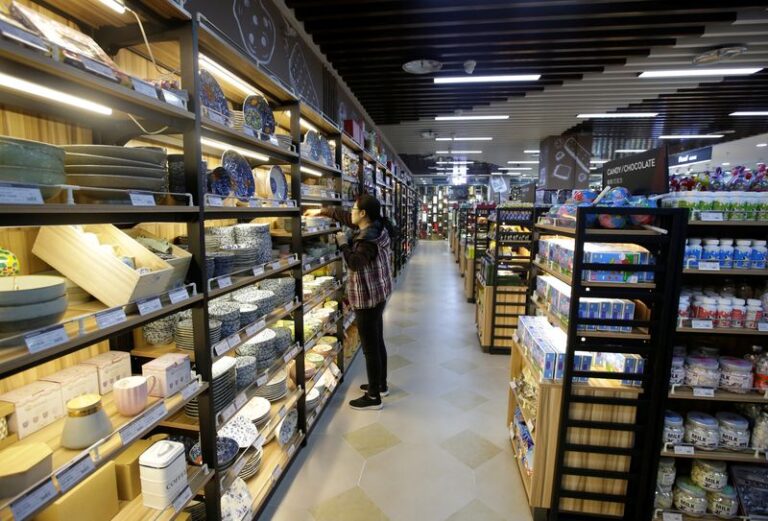Chaoyi Li and Ryan Wu
BEIJING (Reuters) – China’s consumer price index rose for a fifth straight month in June but fell short of expectations, while producer price deflation persisted and domestic demand remained stuck on a slow recovery despite support measures for the world’s second-largest economy.
China’s government is seeking to revive consumption after a faltering post-COVID recovery, but worries remain about more fundamental issues including a sluggish housing market and lingering employment insecurity that have depressed consumer and industrial activity and prompted calls for more effective policies.
Data released by the National Bureau of Statistics (NBS) on Wednesday showed China’s consumer price index (CPI) rose 0.2 percent in June from a year earlier, down from a 0.3 percent increase in May, the lowest in three months and below the 0.4 percent increase expected by economists in a Reuters poll.
“Deflation risks have not disappeared in China and domestic demand remains weak,” said Zhang Zhiwei, chief economist at Pinpoint Asset Management.
Food prices fell further despite supply disruptions caused by bad weather over the summer, highlighting weak demand.
Food prices fell 2.1% year-on-year, down from a 2% drop in May. Fresh vegetable prices in particular fell 7.3% after rising 2.3% in May. The decline in fresh fruit prices widened to 8.7% from 6.7% in May.
The consumer price index fell 0.2% from the previous month, down from a 0.1% decline in May and worse than the expected 0.1% decline.
The Producer Price Index (PPI) fell 0.8% in June from the same month a year earlier, smaller than the previous month’s 1.4% decline and in line with the expected 0.8% decline.
The PPI decline was the smallest in 17 months, mainly due to a low base last year.
“The deepening decline in ex-factory prices for consumer durables highlights that excess capacity continues to be a growing problem,” said Gabriel Ng, assistant economist at Capital Economics.
“Government policies still prioritise investment, which will exacerbate the problem. This will weigh on inflation,” Ng said, predicting the CPI will rise just 0.5% for the full year, well below the official inflation target of 3% for 2024.
Chinese retailers are discounting products ranging from cars to coffee to weather a slump in consumer spending due to a fragile economic outlook.
Data from the National Bureau of Statistics showed the decline in gasoline prices accelerated to 6 percent in June from 5.2 percent the previous month, while prices of new energy vehicles fell 7.4 percent after a 6.9 percent drop in May.
Policymakers have repeatedly called on the public to “spend boldly” but have received a lukewarm response. With households and businesses expected to borrow less, there is a growing need for policy support beyond piecemeal subsidies for trade-ins of cars and consumer goods.
As part of China’s tax reform, an overhaul of the consumption tax could be announced at a key leadership meeting next week, potentially shifting incentives for local officials from expanding the manufacturing base to growing the consumer base.
“Low inflation and weak credit data provide a compelling case for further monetary easing from the People’s Bank of China in the coming months,” said Lin Song, chief Greater China economist at ING.
Core inflation, which excludes volatile food and energy prices, was 0.6% in June, unchanged from May.
(Reporting by Chao-Yi Lee and Ryan Wu; Editing by Jacqueline Wong)

